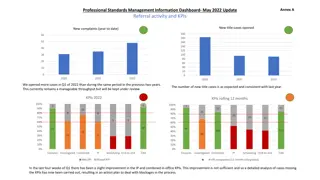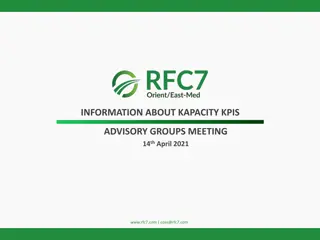
Modern Translation Theories and Alexander Fraser Tytler's Principles
Explore the evolution of translation theories in modern times, focusing on the principles outlined by Alexander Fraser Tytler in the 18th century. Tytler emphasized fidelity to the original text's content, retention of style, and the importance of maintaining the ease of the original composition. Delve into the age-old debate of word-for-word versus sense-for-sense translation approaches as reflected in Tytler's principles. Discover Tytler's concept of fluency, naturalness, and domestication in translation, culminating in his definition of a good translation as one that effectively conveys the merit of the original work to readers in the target language.
Download Presentation

Please find below an Image/Link to download the presentation.
The content on the website is provided AS IS for your information and personal use only. It may not be sold, licensed, or shared on other websites without obtaining consent from the author. If you encounter any issues during the download, it is possible that the publisher has removed the file from their server.
You are allowed to download the files provided on this website for personal or commercial use, subject to the condition that they are used lawfully. All files are the property of their respective owners.
The content on the website is provided AS IS for your information and personal use only. It may not be sold, licensed, or shared on other websites without obtaining consent from the author.
E N D
Presentation Transcript
The Philosophy of Education Historical Background Revisited 4
4. Translation Theories in Modern Times In the 18th century, the translator was likened to an artist with a moral duty both to the work of the original author and to the receiver. Alexander Fraser Tytler in his book Principles of Translation (1791) drew attention to three principles that should be taken into account by translators:
Alexander Fraser Tytler 1- the contents and/or ideas of the ST should be transferred completely into the TT; 2- the style and manner of the ST should be retained in the TL; and 3- the translation should have all the ease of the original composition
Alexander Fraser Tytler Examining Tytler s principals, in particular the first two, one can readily observe that his principles represent, albeit indirectly, the age-old debate of the nature of translation: whether the translator had to opt for word-for-word translation or sense-for-sense translation. While the first principle requires translators to be faithful to the content of the original text, the second principle encourages translators to be free from linguistic constraints involving form and denotation in favour of a more functional perspective .
Alexander Fraser Tytler We see in his third principle, Tytler developing the concepts of fluency , naturalness , and domestication.
Alexander Fraser Tytler Tytler (1747 1813) defines a good translation as being oriented towards the target language reader: That in which the merit of the original work is so completely transfused into another language as to be as distinctly apprehended, and as strongly felt, by a native of the country to which that language belongs as it is by those who speak the language of the original work .
Alexander Fraser Tytler Although Tytler was of a view that translators had to clarify obscurities in the original by way of omission or addition, he stood against paraphrase , which was supported by Dryden holding that the concept of paraphrase had led to exaggeratedly loose translations
Nineteenth Century: Schleiermacher & Muhammad Ali Pasha (Romanticism & Reformism) The 19th century was characterized by two conflicting tendencies: 1) considering translation as a category of thought, with the translator seen as a creative genius , who enriches the literature and language into which he is translating ; and 2) viewing the translator in terms of performing the mechanical function of making a text or an author known.
Friedrich Schleiermacher The theologian and translator, Friedrich Schleiermacher (1813), considered the founder of the modern hermeneutics, took the discussion a step further in his essay entitled 'On the Different Methods of Translating' in which he focused on the methodologies of translations , rather than illuminating the nature of the translation process
Friedrich Schleiermacher He moves beyond the strict issues of word-for- word and sense-for-sense, literal, faithful and free translation, and considers there to be only two paths open for the true translator: Either the translator leaves the writer in peace as much as possible and moves the reader toward him, or he leaves the reader in peace as much as possible and moves the writer toward him .
Friedrich Schleiermacher In this way, the translator, an expert in the TL, can help the less competent but intelligent German reader to appreciate the ST. To achieve this, the translator must adopt an alienating , foreignizing method of translation. This emphasizes the value of the foreign, by bending TL word-usage to try to ensure faithfulness to the ST. Thus can the TT be faithful to the sense and sound of the ST and can import the foreign concepts and culture into German.
Friedrich Schleiermacher There are several consequences of this approach, including: (1) If the translator is to seek to communicate the same impression which he or she received from the ST, this impression will also depend on the level of education and understanding among the TT readership and the translator. (2) A special language of translation may be necessary, for example compensating in one place with an imaginative word where elsewhere the translator has to make do with a hackneyed expression that cannot convey the impression of the foreign.














